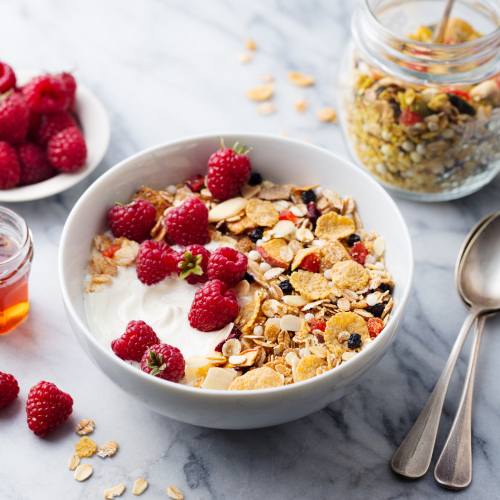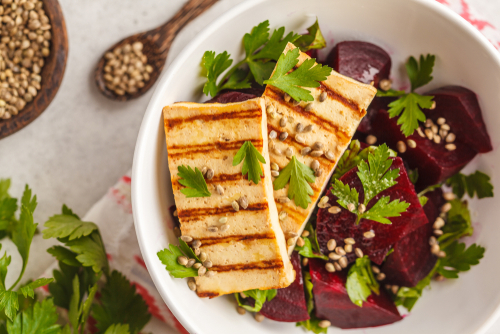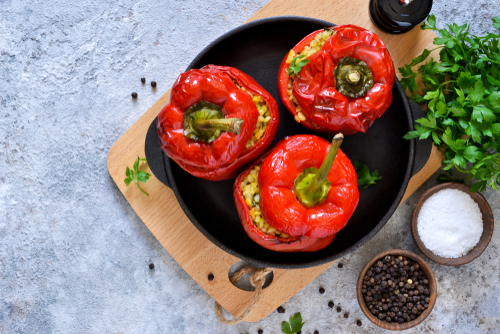Following a plant-based diet is a choice more and more people are making. It can be a super healthy way to eat, but as with any dietary approach that excludes specific foods, it’s important to consider whether certain nutrients need boosting or replacing. Here, Nutracheck shares four essential nutrients you need to know about if you follow a plant-based diet.
Cruelty Free Beauty
- 4 signs you have low iron levels
- Zero Waste Beauty: Adopt a green routine with these sustainable products
- This eco-friendly beauty box is packed with refillable multi-taskers
- “I find myself using it even when I don’t need to!”
- Arctic-inspired natural skincare brand launches in the UK
- Green People launches beauty balm packaged in 100% biodegradable pot
- Lush launches same-day delivery service for its iconic handmade cosmetics
- “This cruelty-free tanning water gave me the confidence boost I needed”
- rho launches sustainable loungewear that gives back
- Rose & Caramel Raises Awareness For Women’s Self-Esteem & Mental Health With ‘I TAN FOR ME’ Campaign
- Couple launches entirely plant-based and refillable deodorant on Kickstarter
- View all
Eco Living
- Simple Hacks to Cut Your Food Waste with Gino D’Acampo
- Five Easy Ways to Reduce Food Waste
- Eat these foods to boost your mood
- Upgrade Your Cheese Toastie
- Have a healthy Christmas with these festive food swaps
- Omega-3 Health Benefits
- 5 minutes with Max La Manna
- A nutritionist’s guide to eating for healthy joints
- Easy ways to achieve your health goals
- Discover the benefits of raisins on a vegetarian diet
- Improve your gut health with California Raisins
- View all
Vegan Recipes
- Quorn Vegan Hot & Spicy Burger with Pink Slaw
- Tomato and Pumpkin Soup
- Pea and elderflower cocktail
- Matcha Coconut Ice Cream
- Vegan Lemon Bars
- Mango Salad with Thai Dressing
- Garden Gimlet
- Tofu & Green Beans Teriyaki
- Cornflakes Bombay
- Rainbow Pickle
- Soba noodles with kale and collards
- View all
Popular recipes
- Spinach and ricotta quiche vegetarian recipe
- Cheats mushroom and spinach lasagne vegetarian recipe
- Lentil bolognese vegetarian recipe
- Creamy mushroom stroganoff vegetarian recipe
- Malaysian Rendang curry vegetarian recipe
- Feta, Butternut Squash, Caramelised Onion and Cashew Nut Wellingtons
News
- Lewis Hamilton Launches Plant-Based Burger Chain
- Jimmy’s Oat Flat White: it’s vegan, it’s iced and it’s a total winner
- New Veggie Snacks Help Raise Awareness Around Issues of Food Waste
- New sustainable British beauty brand launches
- Lily Lolo launches refillable make-up
- Veggie Pret launches vegan bakery counter
- New sustainable fashion brand launches vegan bags in the UK
- Vegetarian butcher takes over popular London shop
- Nourish London collaborates with Freeset to create gifts that give back
- Warning For UK Shoppers Over Toxic Toys
- LONDON’S FIRST 100% VEGAN PUB REOPENS WITH NEW RESTAURANT
- View all
The most important nutrients for a plant-based diet
Easy ways to stay on top of your health


Vitamin B12
Our body needs vitamin B12 for a healthy nervous system and to make red blood cells. B12 is only really found naturally in animal based foods, so fortified foods or a supplement should be considered when excluding all animal derived products.
Good fortified sources include:
–Some breakfast cereals
–Some non-dairy milks
–Yeast extract

Omega-3
Another important nutrient worth careful consideration when following a plant-based diet is omega-3. It is an ‘essential’ nutrient, which means we can’t make it ourselves, so we must get it from our diet. Omega-3 is important for maintaining healthy cells and plays a particularly important role in heart health. Omega-3 is primarily associated with oily fish – but if fish isn’t on your menu, don’t stress.
These plant-based sources will help to up your intake:
–Walnuts
–Soya beans
–Soya based foods e.g tofu
–Flaxseed and flaxseed oil
–Rapeseed oil
–Chia seeds

Iron
Did you know there are two different types of iron: haem iron and non-haem iron? Haem iron is found in animal-derived foods and is easily absorbed by our body. Non-haem iron is contained in plant-based foods and is not as easily absorbed as haem iron.
Iron is important for keeping our energy levels up! When following an entirely plant-based diet, eating foods rich in vitamin C with foods rich in non-haem iron can help to increase absorption.
Try these combos to ensure you’re getting enough:
–Porridge topped with strawberries
–Broccoli and cashew nut stir-fry
–Quinoa-stuffed roasted peppers
–Dried fruit and a glass of OJ

Calcium
Calcium is one of the important nutrients we need to pay attention to if following a plant-based diet. It’s essential for bone health, so is vital to get enough throughout all stages of life as it not only helps with bone development, but also ongoing bone health.
Dairy foods provide some of the best sources of calcium, but if you’re dairy-free and totally plant-based, you’ll need to focus on other sources.
To keep your calcium intake up in a dairy-free diet, make sure you include these foods instead:
–Fortified non-dairy milk and yoghurt alternatives
–Soya based foods e.g. tofu
–Dried fruit and nuts
–Green leafy veg
For more nutritional advice and to stay on top of your health goals, visit: nutracheck.co.uk/appstore
More from Vegetarian blog

October is National Mushroom Month and to celebrate, we've rounded up our favourite dishes that use our favourite fun guys...

Try this new vegan food company today...

Shallots are the annoying (and fiddly) little brother of onions, and their cumbersome nature often gets them left out of recipes. But shallots have an unrivalled, delicate flavour that should be savoured, so we found the best tips to make preparing the little beggars that little bit easier.

What do the professionals do differently?We caught up with some of our favourite chefs to find out their tips for culinary success every time





